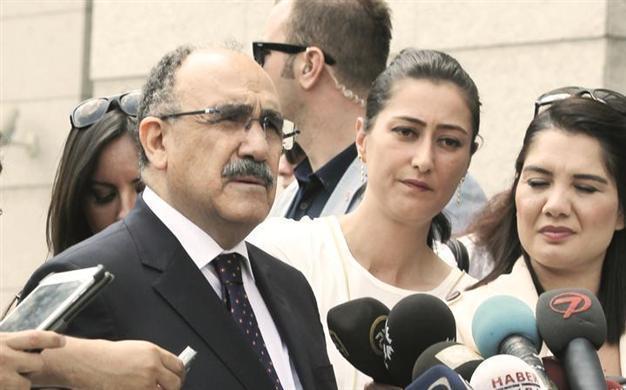Turkish gov’t mulls direct talks with PKK militants on Iraq's Mount Kandil
ANKARA

'I desire direct talks between our yet-to-be-set team with Kandil,' Deputy Prime Minister Beşir Atalay said on Aug. 19. AA Photo
A senior Turkish government official has hinted that the country’s intelligence organization could engage in direct talks with the Kurdistan Workers’ Party’s (PKK) top cadres on Mt. Kandil in northern Iraq to boost the ongoing Kurdish resolution process.“I desire direct talks between our yet-to-be-set team with Kandil,” Deputy Prime Minister Beşir Atalay told the private broadcaster, NTV in an interview on Aug. 19. Kandil is a mountain in northern Iraq where the PKK has its headquarters and training camps.
Atalay said they were working on a road map as part of the ongoing Kurdish peace process and enlarging the team conducting negotiations with the PKK’s imprisoned leader, Abdullah Öcalan. The deputy prime minister’s statement that the team could also talk to militants on Kandil was seen as an important milestone in the government’s efforts to resolve the Kurdish issue and demilitarize the PKK.
“When necessary, our state institutions may talk to Kandil in some other places as well. Because we are at a phase in which we are determining the final steps of this process. Any kind of meetings could take place to effect the maturation of the action plan in the legal frame,” Atalay said.
Atalay’s statement came a day after he held a meeting with a delegation from the People’s Democracy Party (HDP), which is focused on the Kurdish issue.
The government adopted a law to provide a legal framework to ongoing negotiations with the PKK and to give partial immunity to state officials involved in the process.
But Atalay urged the PKK to stop all illegal activities in southeastern Anatolia to allow the government to take more steps over the Kurdish resolution process.
PKK elements are racketeering and threatening people to vote for a certain party, Atalay said, vowing that security forces would stop such illegal moves just like they do in other parts of the country.
Establishing a monitoring group
Asked whether the establishment of a group to monitor the resolution process was on the government’s agenda, Atalay said such mechanisms could be inserted into the action plan but added that no final decision had yet been made.
Atalay said a monitoring delegation could be established among a “wise persons’ team” that was formed in the early stages of the resolution process. The team visited different parts of the country to convince the public about the merits of the resolution process.
Atalay said the government could pass new laws to facilitate the return of PKK fighters to Turkey after they disarm but underlined that the government would not issue a blanket amnesty for militants.
“We don’t use the concept of amnesty. Return to home is very substantial. There are those who committed crimes and who did not commit crimes, as well as those who are only members of the organization and leaders,” Atalay said.
The government will not hesitate to adopt laws when necessary, he reiterated, saying: “We are resolving a very big problem in Turkey. It’s basically a civil war that has been continuing for the last 30 years.”
The state has almost fulfilled its responsibility by implementing necessary procedures for the fighters’ return to their homes, Atalay said. “The other side has much to do afterwards,” he added.
“We’ll introduce our road map: Withdrawal from Turkey, dropping weapons, return to homes and [leaving] the organization and Makhmour [refugee camp in northern Iraq where Turkey’s Kurds have been sheltered] and then their adaptation to normal life inside Turkey. We want Turkey to be a normal country – nothing else,” he said.
















